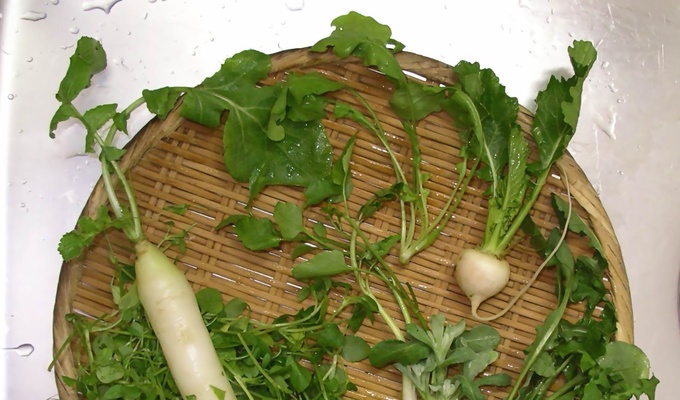The nanakusa, or more specifically, haru no nanakusa (春の七草, "Spring's seven flowers"), are seven edible wild herbs of spring, celebrated in Japanese culture. Traditionally, they are:
- Japanese parsley (seri, 芹)
- Shepherd's purse (nazuna, 薺)
- Cudweed (gogyō, ごぎょう or hahakogusa
- Chickweed (kohakobe, コハコベ)
- Nipplewort (hotokenoza, 仏の座 or koonitabirako)
- Turnip (suzuna, 菘 or kabu, カブ)
- Radish (daikon 大根, or suzishiro)
There is considerable variation in the precise ingredients, with common local herbs often being substituted.
On the morning of January 7, or the night before, people place the nanakusa, rice scoop, and/or wooden pestle on the cutting board and, facing the good-luck direction, chant "Before the birds of the continent (China) fly to Japan, let's get nanakusa" while cutting the herbs into pieces. The chant may vary from place to place.
